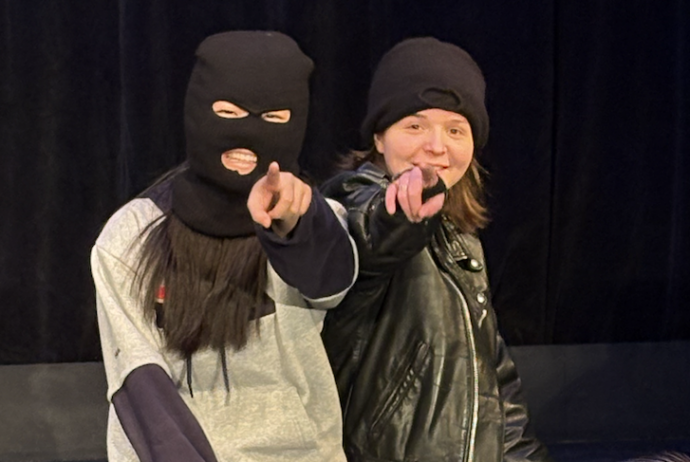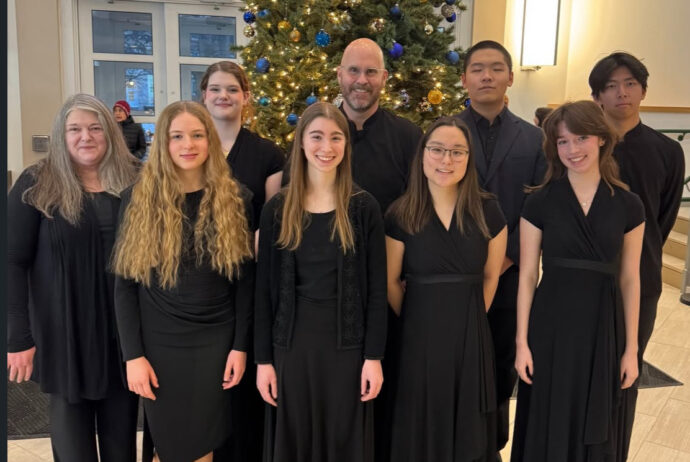By Nancy Dahal ‘28
Each year, the Wyoming Seminary Drama Department produces three different theatrical shows. This year started with a boom as the autumn musical combined music, dance, and acting into a fantastic, all-around act! The end of the year holds the spring play which captivates audiences with its intense acting and riveting characters. Between these two spectacles is where the Winter Workshops lie. The Winter Workshops contained two slates this year which were hosted in BPAC from Wednesday February 11 to Sunday February 15.
The Winter Workshops consist of comedic scenes ranging typically from ten to fifteen minutes with a small cast of actors each. Unlike the musical and the play which both require around five days per week, the workshops operate with only one hour per scene a week. Due to the lighter time commitment, they attract many students who did not have previous interest, experience, or time to be involved in Sem Drama. In the words of Doron Glynn ‘26, “I got involved in acting at SEM through the winter workshops in my freshman year. I’ve been doing it ever since and it’s allowed me to make some of my closest friends. You can participate in some hilarious scenes and show your talent without the intense time commitment of the musical.”
This low time commitment allows a greater range of people to join in on the experience. The workshops welcome varying experience levels as well ranging from aspiring professionals to hobbyists to people who just wanted to try new things and put themselves out there. These students also tend to vary a lot in age and origin with students of all years and from all places collaborating. The tighter knit fashion of the scenes and rehearsals continues this trend as the students involved in scenes together can form long lasting friendships.
The Winter Workshops act as a casual way for students to express their passions towards theatre. Kurt Soreth ‘26 described it well by saying, “Winter Workshop for the past four years has always been a huge learning experience for me whether I am playing a DMV worker or even Satan. I love acting and the art of performance, and I knew it was going to be another great show!”
With all the joy and laughter that they brought to campus, the Winter Workshops were an astounding success this year. The Sem Community thanks all the students involved in the incredible production both on and backstage. As well, many incredible faculty members made the Workshops possible like directors Mr. Sherry and Mrs. Sherry and Mr. Bussie, the hands behind the operation. Hopefully, the Sem Drama Department will continue to be able to bring such incredible productions to the spotlight for many years to come!


